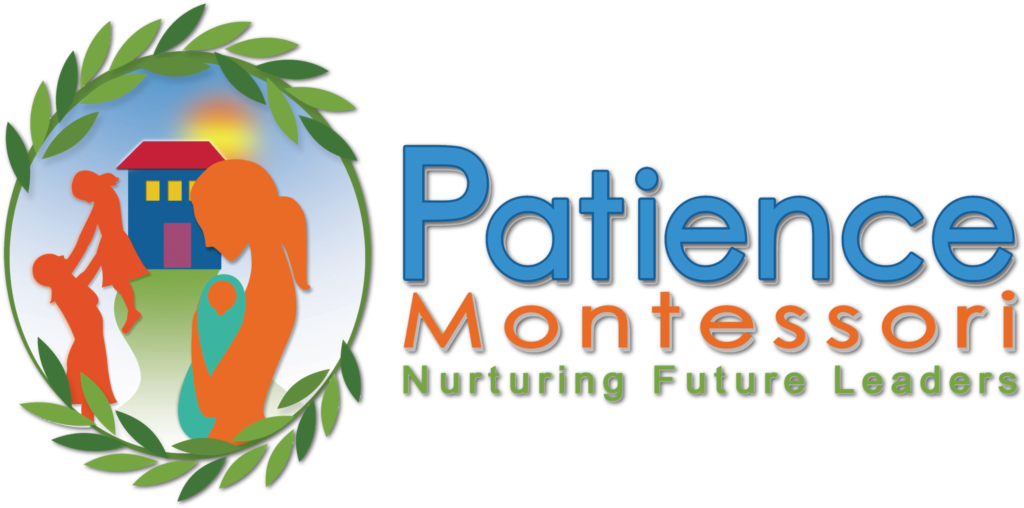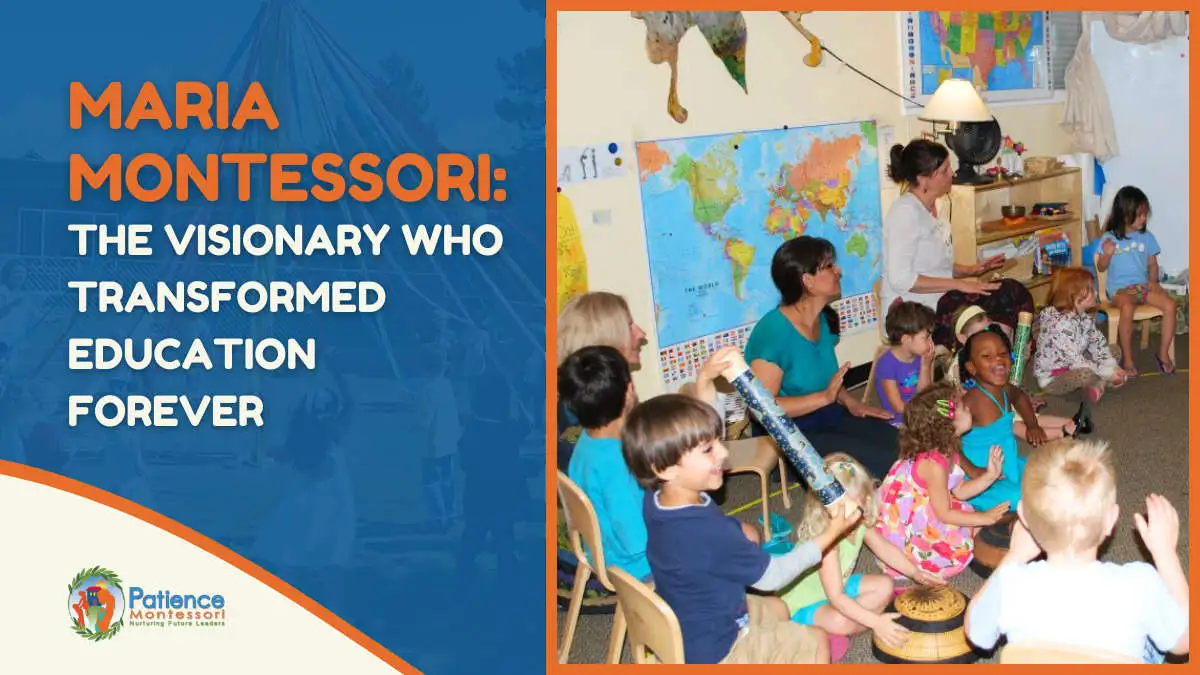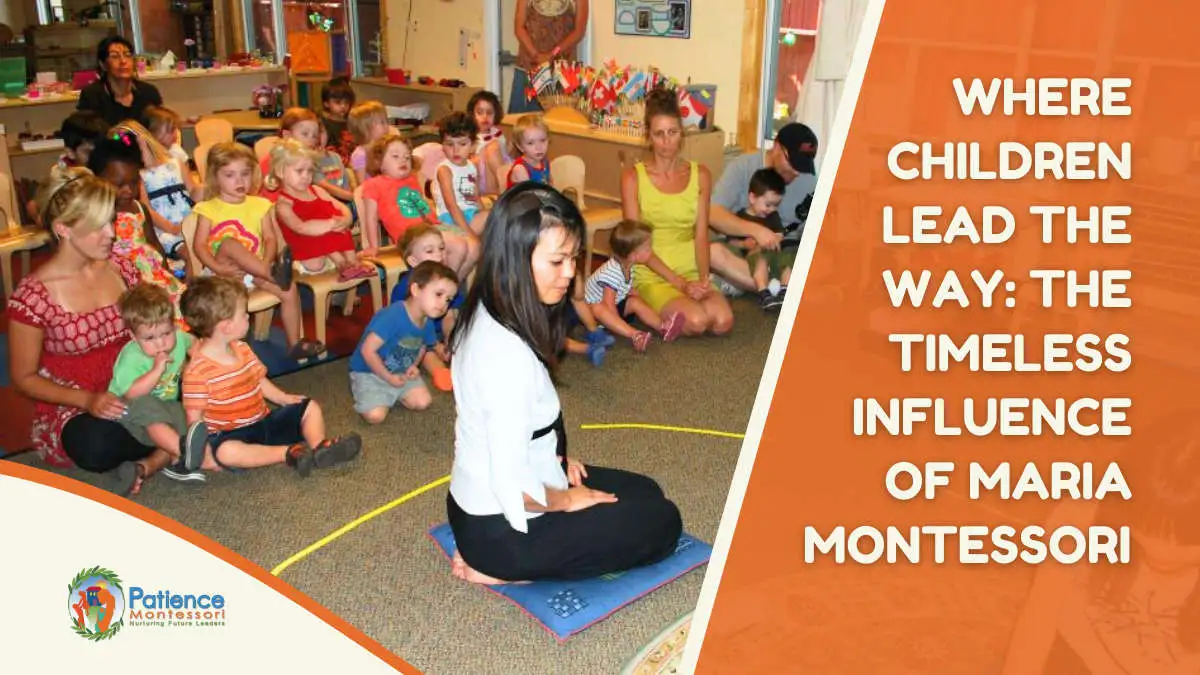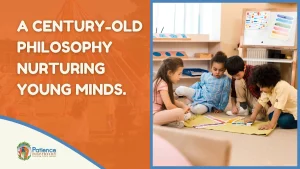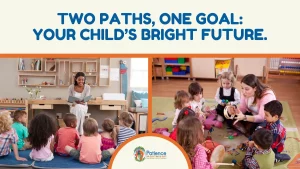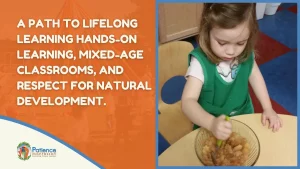If you’ve ever stepped into a classroom where children eagerly choose their own activities, you’ve witnessed the enduring influence of Maria Montessori. Over a century ago, this pioneering Italian educator envisioned an environment built on respect for each child’s innate potential. Her revolutionary methods—rooted in observation and guided by a scientific lens—continue to inspire parents and teachers worldwide.
Maria Montessori was far more than an educator: she was a trailblazer who forever changed how we perceive children and the learning process. But what made her ideas so groundbreaking, and how have they thrived for over a hundred years? Let’s explore her fascinating life, her transformative contributions, and the enduring ways her philosophy shapes modern education.
Curious to see these principles in action? At Patience Montessori in Boulder, CO, educators champion Montessori’s vision, cultivating a space where children flourish through exploration, collaboration, and hands-on discovery—honoring her legacy in the modern world.
The Genius Behind the Montessori Theory: An Innovative Mind Ahead of Its Time
In the Italian town of Chiaravalle, Maria Montessori was born in 1870. Her father believed education should be the route to female empowerment and pushed her to excel in school—unusual for a girl at that time. She eventually became one of Italy’s first women to attend medical school.
Her medical training proved vital when she began working with children who had special needs—a rarity at the time. Through observation and experimentation, she developed techniques that helped these children learn and gain independence despite their challenges. It was through this work that she discovered her true calling: transforming education on a global scale.
Maria Montessori’s First School: Casa dei Bambini and Its Early Success
Maria Montessori’s career took a defining turn in 1907 when she opened Casa dei Bambini—which translates to “Children’s House”—in a working-class neighborhood in Rome. This first school became the testing ground for her revolutionary ideas and the birthplace of the Montessori method.
At Casa dei Bambini, Montessori worked with children from underserved families, using her medical background to observe their natural behaviors with scientific precision. She noticed children thrived when given the freedom to explore and engage with thoughtfully designed materials. This led her to develop a groundbreaking approach that emphasized child-led activities, sensory-based learning, and practical tasks to foster independence and confidence. Children could choose their work, collaborate with peers, and learn through discovery—transforming the traditional teacher’s role into that of a guide.
The success of Casa dei Bambini was undeniable. Visitors from around the world marveled at the engaged, motivated, and courteous children. Montessori’s methods quickly gained international acclaim, inspiring books, lectures, and training programs. What began as a small experiment in Rome soon became the foundation of a global educational revolution.
From Curiosity to Confidence: The Montessori Philosophy Explained
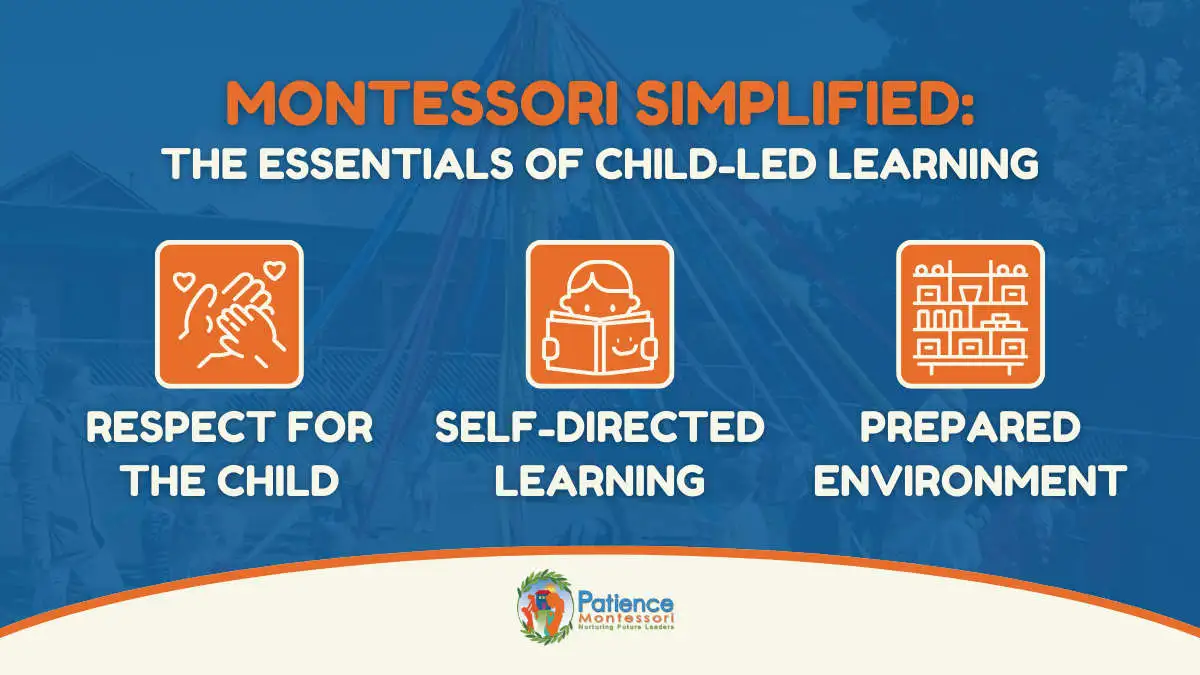
At the heart of Maria Montessori’s groundbreaking approach is what is now widely known as the Montessori philosophy. Instead of relying on rote memorization or strict curriculums, Montessori’s method embraces hands-on activities that actively engage the senses and foster natural curiosity.
Key principles of the Montessori theory include:
- Respect for the Child – Montessori believed each child possesses a unique potential that should be honored and nurtured. Observation and “following the child” lie at the heart of this principle, ensuring that each learner’s interests and pace guide the educational journey.
- Self-Directed Learning – Children are empowered to make choices and pursue activities that spark their curiosity. By taking ownership of their learning, they develop independence, confidence, and a deep love of discovery.
- Prepared Environment – Carefully organized spaces, stocked with child-friendly tools and materials, enable children to engage in meaningful tasks. Shelves at their level, tactile objects, and thoughtfully arranged “work” areas encourage exploration and concentration.
Montessori-inspired classrooms often feature mixed-age groupings, where younger children learn by interacting with older peers. At the same time, older students deepen their understanding by mentoring and guiding the younger ones. Meanwhile, the teacher serves as a guide, observing each child’s progress, offering gentle direction when needed, and stepping back to let curiosity lead the way.
The Maria Montessori Book: An Enduring Legacy
In 1909, Maria Montessori published her seminal work, The Montessori Method, a Maria Montessori book that reshaped the educational landscape. Drawing on firsthand observations from her Casa dei Bambini, Montessori challenged conventional, adult-driven instruction with a revolutionary idea: children learn best when given the freedom to explore at their own pace in a nurturing, prepared environment. This radical perspective quickly gained international acclaim, transforming her book into a global bestseller.
Over a century later, Montessori’s core principles remain profoundly influential: respect for individual development, hands-on learning, and the cultivation of independence. Teachers, parents, and educational reformers have refined and expanded her ideas, but the essence of her approach endures. From preschools to high schools, classrooms inspired by The Montessori Method continue to foster self-directed learners who grow into confident, engaged citizens.
As personalized education and experiential learning gain traction, the demand for Montessori-inspired programs only increases. In many ways, The Montessori Method was not just a book—it was the catalyst for a worldwide movement that persists to this day.
What We Learn from Maria Montessori Quotes
Maria Montessori’s words are as illuminating as her teaching methods, offering timeless guidance for parents, educators, and anyone interested in nurturing young minds. Each quote reflects her deep respect for children and her belief in their inherent ability to learn and grow when given the right opportunities.
“Never help a child with a task at which he feels he can succeed.”
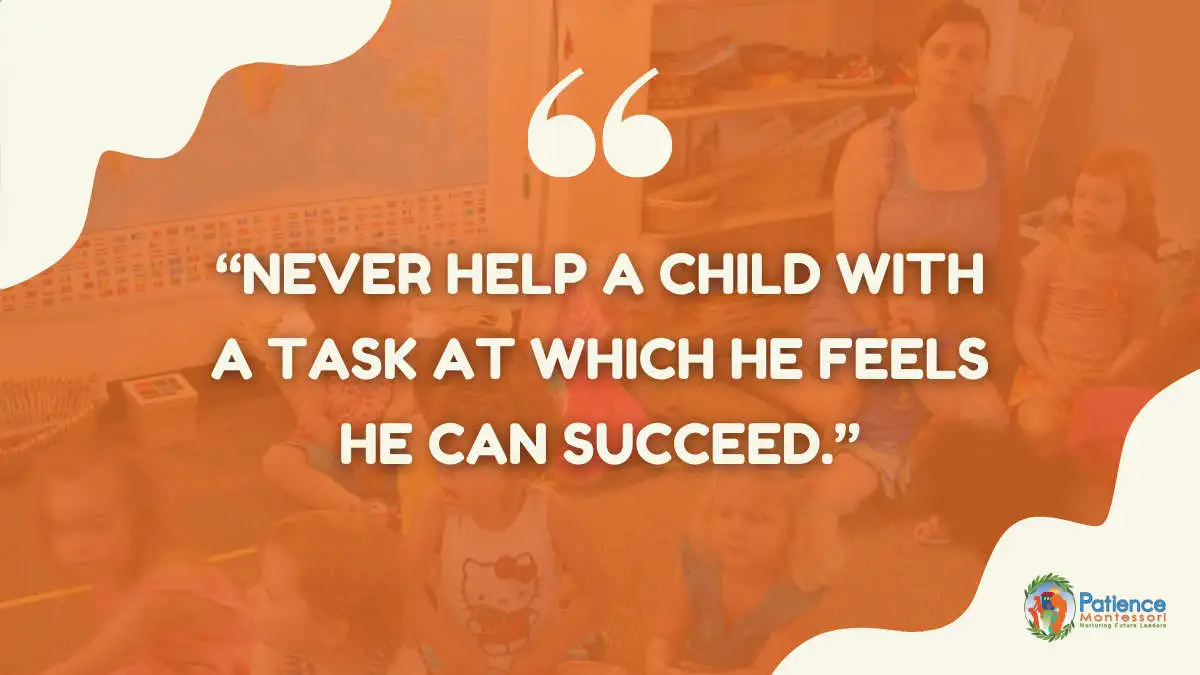
This quote underscores the value of letting children take the lead in their own development. By standing back and allowing them to attempt tasks independently, adults cultivate resilience and self-confidence.
“The greatest sign of success for a teacher is to be able to say, ‘The children are now working as if I did not exist.'”
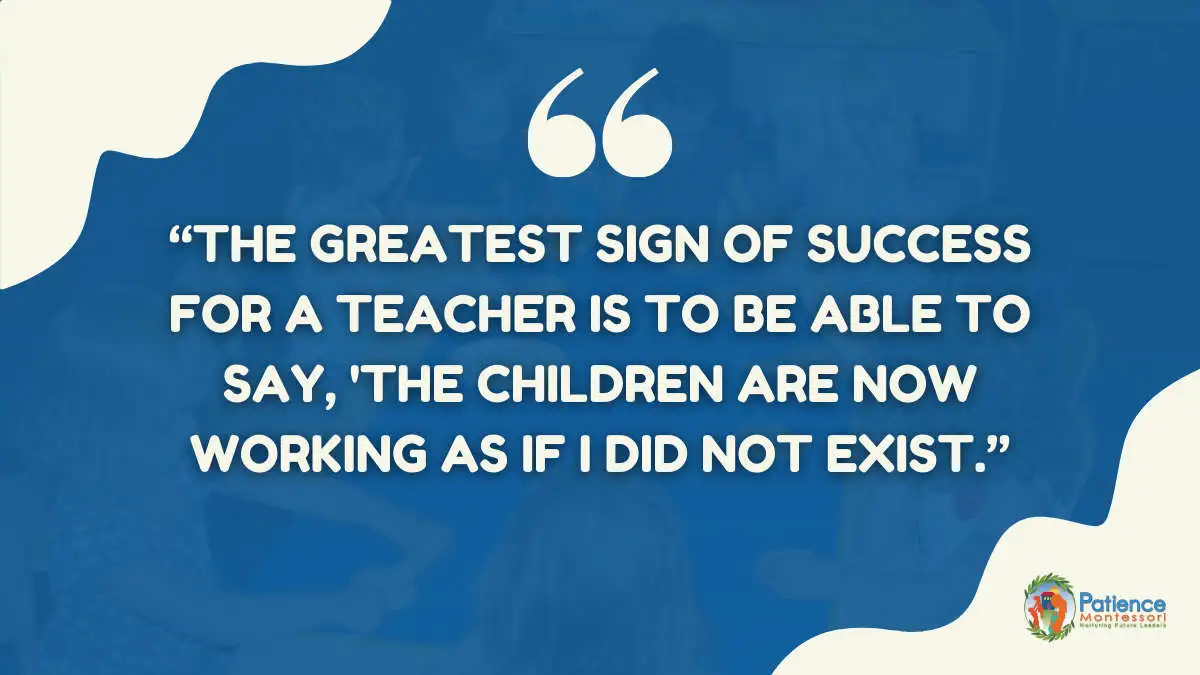
Here, Montessori reminds us that actual teaching empowers learners to function autonomously. The goal is to foster an environment where children are self-motivated and engaged, no longer relying on direct adult intervention.
“Within the child lies the fate of the future.”
Far beyond academic skills, Montessori believed that how we guide and respect children shapes society itself. When we acknowledge their potential and nurture it, we invest in a brighter collective future.
Applying these quotes to daily life—whether at home or in the classroom—means creating opportunities for children to discover, problem-solve, and flourish on their own terms.
Maria Montessori’s Contribution to Education: A Lasting Impact
It’s impossible to overstate Maria Montessori’s contribution to education. Her methods transformed classrooms and empowered generations of children to think critically, explore their creativity, and develop independence.
It’s no surprise that many leaders, creatives, and entrepreneurs credit their Montessori education for shaping the way they think. Visionaries like Google founders Larry Page and Sergey Brin, along with celebrated author Gabriel García Márquez, exemplify how Montessori’s approach has left its mark on innovators in every field.
Beyond her methodology, Montessori emphasized the crucial role of early childhood in personal development. She championed respect and agency in young learners, reshaping the way we nurture and support growing minds.
Today, there are over 20,000 Montessori schools worldwide, serving children from infancy to adolescence. Her principles have also influenced other educational models and remain a gold standard in student-centered learning.
Patience Montessori: Inspiring Independent, Confident Learners in Maria Montessori’s Way
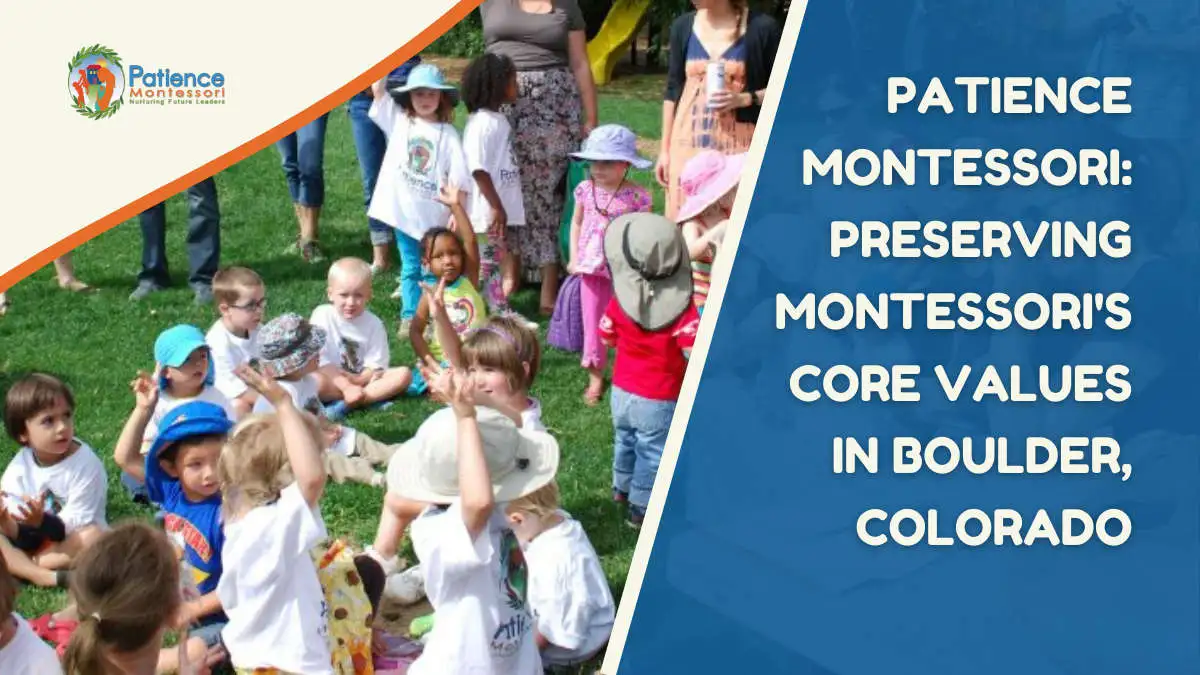
From her humble beginnings in Chiaravalle, Italy, to the global expansion of the Montessori movement, Maria Montessori championed a powerful vision: that every child possesses untapped potential, best realized through hands-on exploration and respectful guidance. Her revolutionary ideas continue to influence schools, homes, and entire educational philosophies—reminding us that children thrive when given the freedom to learn at their own pace.
If you’d like to witness these principles in action, consider Patience Montessori in Boulder, Colorado. Dedicated to preserving Maria Montessori’s core values, Patience Montessori offers a nurturing, child-centered environment that encourages curiosity, independence, and collaborative learning. Families appreciate the personalized attention and focus on the whole child—academic, social, and emotional. Whether you’re a parent, educator, or simply intrigued by progressive education, Patience Montessori provides a living example of Montessori’s legacy, ensuring her transformative ideas continue to light the path for future generations.
